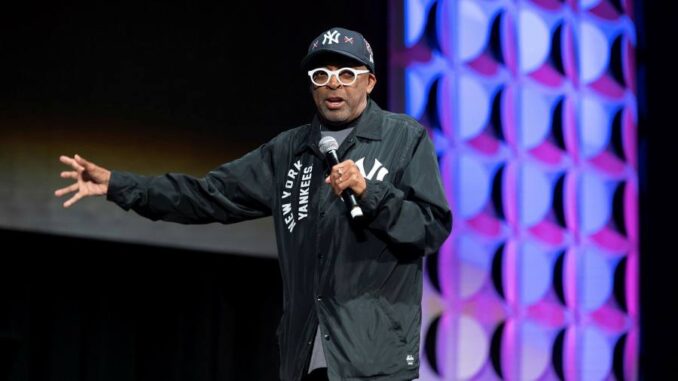
The widespread losses caused by the cryptocurrency crash are even broader among black investors.
A quarter of black American investors owned cryptocurrencies at the start of the year, compared with only 15 per cent of white investors, according to a survey by Ariel Investments and Charles Schwab. Black Americans were more than twice as likely to purchase cryptocurrency as their first investment.
The value of those investments has imploded. The total market capitalisation of cryptocurrencies has plunged below $1tn from more than $3.2tn last year. The fall in digital assets comes alongside a bear market in US stocks.
Black Americans’ higher exposure to cryptocurrencies has left them more vulnerable to the financial downturn, even as their households on average hold less wealth.
The attraction of building wealth, amplified by marketing, drew many black investors into cryptocurrencies. The dollar price of bitcoin rose by 9,300 per cent in the five years to its peak in November.
Jefferson Noel, 27, said he gained his first exposure to crypto in January 2019 when he accidentally invested $5 in bitcoin while using Cash App, a payment service.
“I had no idea what it was, and I don’t even remember doing it,” he said.
By last May his unintentional investment was worth $70. The astronomical gain inspired him to take a friend’s advice to plough $20,000 of his savings into other cryptocurrencies, such as dogecoin, over more traditional investments such as index funds.
“[Black Americans] do not want to be left behind again,” Noel said. “As far as I can tell, the black community sees crypto as a way to even the playing field and get in the game before the gatekeepers prevent others from participating.”
But he is now rethinking that decision. Persistent losses have wiped more than 20 per cent from his crypto investment. He is researching mutual funds on the advice of his uncle, but still buying more crypto.
Historically, black investors have tended to be conservative, investing more of their money into low-risk assets such as insurance and savings bonds. Black Americans are less trusting of the stock market and financial institutions than white Americans, according to the Ariel-Schwab survey. Separate studies have tied their apprehension to decades of discrimination in the financial system.

Jatali Bellanton, the author of a personal-finance curriculum geared towards young black Americans called Kids Who Bank, sees cryptocurrencies as a way to make up for wealth-building opportunities that were historically unavailable in housing and stock markets.
“We do not like to get left behind when it comes to new technology,” she said.
The promise of cryptocurrencies as a wealth builder has been supercharged by celebrity endorsements, sponsorships and advertising.
Prominent black Americans including the musicians Jay-Z and Snoop Dogg, the boxer Floyd Mayweather, the actor Jamie Foxx and the film-maker Spike Lee have promoted crypto to their communities.
Lee appeared in commercials for crypto ATM operator Coin Cloud last year, saying that “old money is not going to pick us up; it pushes us down” and “systematically oppresses”, whereas digital assets are “positive, inclusive”.
Last month, Jay-Z announced a partnership with former Twitter chief executive Jack Dorsey to launch a “Bitcoin Academy” literacy programme in the Brooklyn public housing complex where he grew up.
Such celebrity endorsers have faced heavy criticism for getting paid to sell high-risk investments to people who may not have the resources to weather crypto’s volatility.
“Ninety-eight per cent of these cryptocurrencies were not designed to do anything other than extract money from people’s bank accounts,” said Najah Roberts, a former financial adviser and the founder of cryptocurrency education centre Crypto Blockchain Plug.
“This is not ‘get rich quick’,’’ Roberts added. “There are massive targeting ads that are targeting our community.”
Recommended
Bellanton said it is not adverts but the prospect of financial freedom, a lack of the investment minimums common for mutual funds, and a feeling that the blockchain distributed ledger is more transparent than big banks that draws in first-time investors.
“The reason that minorities at a higher rate than others are adopting crypto is precisely because if you’re not already rich, it’s way cheaper to send [USD Coin, a stablecoin asset] than to send a wire,” said Brian Brooks, chief executive of blockchain company Bitfury, at the Aspen Ideas Festival last month. “It’s just cheaper. The entire system is cheaper and faster. It doesn’t have all these entry barriers where you can only get it if you’re already rich.”
Despite the risk of losses, many black investors are staying invested in the market. Dennis McKinley, 41, has been buying the dip against the advice of his financial adviser. He said his crypto coins now constitute roughly 30 per cent of his overall portfolio, held alongside equities.
“Young black America is just now getting to a point where we have the amount of freedom to have the opportunity to invest in alternative strategies besides just real estate,” said McKinley, a small-business owner in Atlanta. “I think that it’s important to learn and get out there.”







Be the first to comment